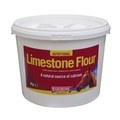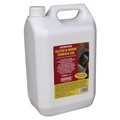Keeping our horses out of pain and suffering is a priority for every horse owner, although sometimes problems can be hard to identify. Dental pain is one such problem, and it can have a huge impact on a horse’s overall health and comfort.
It is important to have your horse’s teeth checked yearly, as they may require floating, which involves filing down the sharp edges of the teeth. These develop over time and, while the wearing down of teeth happens to some extent naturally, it is not always enough to maintain them.
Eating soft grass and hay, wearing bits and even spending time in the stable, can contribute to the teeth not wearing down at the necessary rate, which can lead to problems and even necessitate removal of the problem teeth.
It is important to pay close attention to your horse’s mouth and observe changes to their general behaviour which may signal an issue. If you notice something different about your equine’s demeanour or eating patterns, consult your vet right away.
Things to look out for:
- Headshaking or tilting
- Quidding – when a horse spits out food after chewing
- Foul-smelling breath
- Reluctance or refusal to eat or accept the bit
- Slow eating
- Weight loss
- Colic or choke
Things you can do:
- Consult a veterinarian or an Equine Dental Technician (EDT) if you are worried, and to schedule yearly check-ups.
- Use a stiff toothbrush to dislodge food that may have become trapped between the incisors.
- Some horses may benefit from having their mouths flushed with clean water from a hose.
- Try feeding from the ground, as this is how horses were designed to eat. It will help ensure the jaw is aligned when chewing and reduce abnormal wear on the teeth.
If you have any thoughts on this topic, or advice for our fellow readers, please comment below!
Written by: 1


